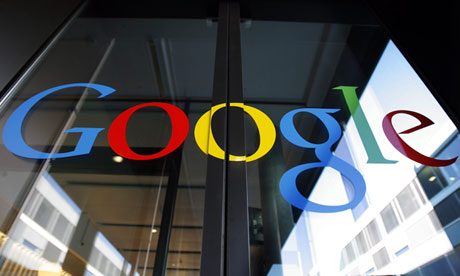Sending message to Gmail users means Google and National Security Agency are accessing email
Google: don't expect privacy when sending to Gmail
Critics call revelation 'a stunning admission' as Google makes claim in court filing in attempt to head off class action lawsuit

Google said the plaintiffs were making 'an attempt to criminalise ordinary business practices' that have been part of Gmail since it began. Photo: Walter Bieri
People sending email to any of Google's 425 million Gmail users have no "reasonable expectation" that their communications are confidential, theinternet giant has said in a court filing.
Consumer Watchdog, the advocacy group that uncovered the filing, called the revelation a "stunning admission." It comes as Google and its peers are under pressure to explain their role in the National Security Agency's (NSA) mass surveillance of US citizens and foreign nationals.
"Google has finally admitted they don't respect privacy," said John Simpson, Consumer Watchdog's privacy project director. "People should take them at their word; if you care about your email correspondents' privacy, don't use Gmail."
Google set out its case last month in an attempt to dismiss a class action lawsuit that accuses the tech giant of breaking wire tap laws when it scans emails sent from non-Google accounts in order to target ads to Gmail users.
That suit, filed in May, claims Google "unlawfully opens up, reads, and acquires the content of people's private email messages". It quotes Eric Schmidt, Google's executive chairman: "Google policy is to get right up to the creepy line and not cross it."
The suit claims: "Unbeknown to millions of people, on a daily basis and for years, Google has systematically and intentionally crossed the 'creepy line' to read private email messages containing information you don't want anyone to know, and to acquire, collect, or mine valuable information from that mail."
In its motion to dismiss the case, Google said the plaintiffs were making "an attempt to criminalise ordinary business practices" that have been part of Gmail's service since its introduction. Google said "all users of email must necessarily expect that their emails will be subject to automated processing."
According to Google: "Just as a sender of a letter to a business colleague cannot be surprised that the recipient's assistant opens the letter, people who use web-based email today cannot be surprised if their communications are processed by the recipient's ECS [electronic communications service] provider in the course of delivery."
Citing another privacy case, Google's lawyers said "too little is asserted in the complaint about the particular relationship between the parties, and the particular circumstances of the [communications at issue], to lead to the plausible conclusion that an objectively reasonable expectation of confidentiality would have attended such a communication."
A Google spokesperson said on Wednesday evening: "We take our users' privacy and security very seriously; recent reports claiming otherwise are simply untrue.
"We have built industry-leading security and privacy features into Gmail - and no matter who sends an email to a Gmail user, those protections apply."
Simpson, a long-term Google critic, said: "Google's brief uses a wrong-headed analogy; sending an email is like giving a letter to the Post Office. I expect the Post Office to deliver the letter based on the address written on the envelope. I don't expect the mail carrier to open my letter and read it.
"Similarly, when I send an email, I expect it to be delivered to the intended recipient with a Gmail account based on the email address; why would I expect its content will be intercepted by Google and read?"
- This story was corrected on 14 August to make clear that Google's court filing was referring to users of other email providers who email Gmail users - and not to the Gmail users themselves.
